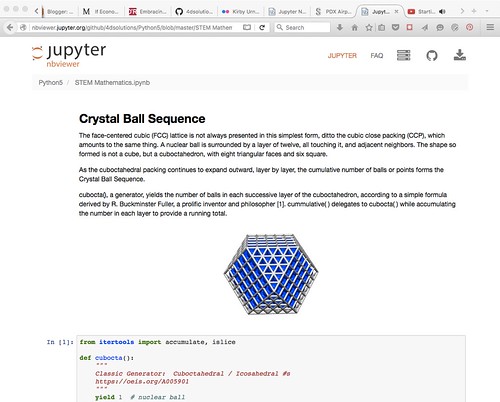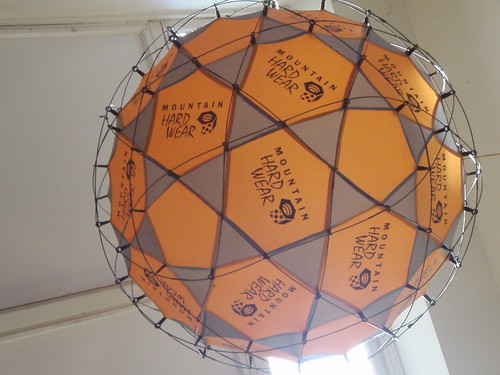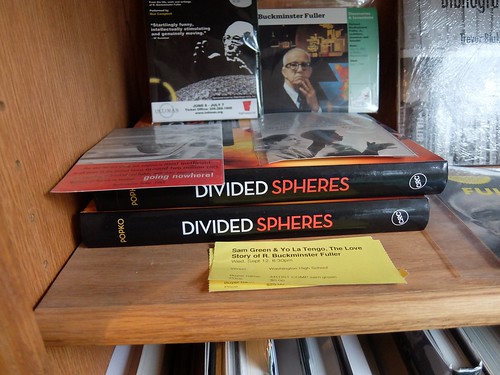Mom uses a walker, I've got some ankle problems (not too severe) and the dog can't walk at all, so our current cast at Blue House might be called a family of Hobbles (versus Hobbits), my lame attempt at some kind of joke.
I've been haunting magazine racks, the real ones, like at Fred Meyer's out by Oregon Clinic just now, where mom was getting an all clear on a lung spot they'd been watching. Good news.
These particular magazine shelves opted out of of carrying the computer mags, other than one Tips for Windows 10 compendium. Other Freddies have the comp mags. Browsing mags is not a new habit for me.
Yes, I'm following the thread about Grunch locking out Uncle Sam while meanwhile planning 5G global telecomms all by its lonesome. That's per Grunch of Giants predictions. We used to call it the design science revolution.
Ms. Coulter and "the Donald" are right that there's a kind of "adios mentality" regarding some of the older mindsets. They're stumping for higher voltage across national borders, more electric fences or whatever. China goes through these cycles too.
Nationalism pushed to the extreme Coulter envisions has never been tried at the scale any future USA would need to attempt, if truly wishing to seal its borders against those without the proper paperwork.
The only reason the USA gets away with projecting itself as a global power is the hope that gives many a foreign national of one day emigrating. The more selfish the USA becomes, the fewer the tenable bases of operation overseas. Supranational corporations know this pattern well.
Mindsets go in and out of style, not as frivolously fast as hem lines go up and down maybe, but over much longer cycles, like Kondratiev waves (remember those?).
One of my students @ < guild /> ; introduced me to Quantopian, which I also stumbled upon while following the Jupyter story. Jupyter is spin-off from the I-Python Notebook project, refactored to be more generalized, with the Python bits separate.
I've been haunting magazine racks, the real ones, like at Fred Meyer's out by Oregon Clinic just now, where mom was getting an all clear on a lung spot they'd been watching. Good news.
These particular magazine shelves opted out of of carrying the computer mags, other than one Tips for Windows 10 compendium. Other Freddies have the comp mags. Browsing mags is not a new habit for me.
Yes, I'm following the thread about Grunch locking out Uncle Sam while meanwhile planning 5G global telecomms all by its lonesome. That's per Grunch of Giants predictions. We used to call it the design science revolution.
Ms. Coulter and "the Donald" are right that there's a kind of "adios mentality" regarding some of the older mindsets. They're stumping for higher voltage across national borders, more electric fences or whatever. China goes through these cycles too.
Nationalism pushed to the extreme Coulter envisions has never been tried at the scale any future USA would need to attempt, if truly wishing to seal its borders against those without the proper paperwork.
The only reason the USA gets away with projecting itself as a global power is the hope that gives many a foreign national of one day emigrating. The more selfish the USA becomes, the fewer the tenable bases of operation overseas. Supranational corporations know this pattern well.
Mindsets go in and out of style, not as frivolously fast as hem lines go up and down maybe, but over much longer cycles, like Kondratiev waves (remember those?).
One of my students @ < guild /> ; introduced me to Quantopian, which I also stumbled upon while following the Jupyter story. Jupyter is spin-off from the I-Python Notebook project, refactored to be more generalized, with the Python bits separate.
I've been using nbviewer (Notebook viewer) for it's intended purpose: to render public Jupyter Notebooks given the URL. I have two examples saved at Github, which I yak about more on mathfuture.
Github also renders Jupyter Notebooks natively, but with more restrictions. For example to see the embedded Youtubes in my example, one needs to let nbviewer do the rendering.
O'Reilly, a former employer, has been jumping on the Jupyter bandwagon, supporting an Open Source project of its own called Thebe. Jupyter is experimenting with adding workflows that would enable the kind of work cycle we enjoyed at O'Reilly School.
However when it comes to learning programming, I don't see the Notebook as a replacement for the IDE. These are two different genres of software. That's why the Anaconda distro comes with Spyder (an IDE) and not just I-Python Notebook.
I'm upbeat about all this technology and its Open Source foundations and share about it with my bevy of students in California, to whom I recommend the Anaconda distro from Continuum Analytics. I also share my enthusiasm for PythonAnywhere.
I've had three posts so far accepted for publication by the CERM Academy, a risk management focused cyber-place.
Thought for the day (TFTD): given we call it "hypertext" as in HTTP and HTML, why not start referring to cyberspace as likewise hyperspace?
We reserve hyperspace for science fiction meanings only? As a literary device, it explains near-instantaneous inter-planetary travel.
Given we do not really have that physics pinned down, but do have the cyber-thing going, why not loosen the grip of the fiction writers and take a step towards reality?
My friend Gene Fowler, the poet / ex-con who discovered Bucky and Synergetics "on the inside" (in San Quentin), thought "hyper" really meant little more than "wow" or "gosh" and so all this hypertext talk was to his ear was somewhat immature-sounding, like "wow-text" or maybe "golly-gee-wiz-text".
I would argue that thanks to science fiction, our meaning for "hyper" had evolved to a more geometric picture, of how locales could all interconnect, by means of "secret tunnels" if you will. That image carries over in this proposed "new" application of the "hyperspace" concept.
Anyway it's not about Uncle Sam being "locked out", only not having the right to insist on Grunch dumbing itself down just to please the District of Columbia.
DC is less powerful than Wall Street according to Bernie Sanders, who oughta know, and Wall Street watches the rest of the world in hopes of seeing its quantopian dreams coming true.
A track record of extremist, immoderate policies, both foreign and domestic, has dispelled any illusions that DC is to be given the car keys; too many DUIs, too much driving under the influence of debilitating mindsets.



